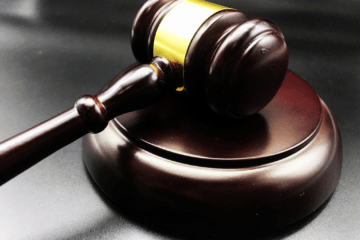
Meaning of Restitution
In layman’s terms, restitution can be understood as an “act of the restoration of something to its original state.” Restitution is restoring of anything unjustly taken from another. It means residing to a party the benefit which the other party has received under a decree subsequently held to be wrong.
Section 144 of the Code of Civil Procedure lays down the provision regarding restitution.
Doctrine explained
The basic principle behind the doctrine of restitution is that, on reversal of a decree, the law imposes an obligation on the party to the suit who recurred an unjust benefit of the erroneous decree to make restitution to the other party what he had lost. Such an obligation arises automatically on reversal or modification of the decree and necessarily carries with it the right restitution of all that had been done under the erroneous decree.
In Binayak Swain v Ramesh Chandra (AIR 1966 SC 948) it was held that the Court in making restitution is bound to restore the parties, so far as they can be restored, to the same position they were in at the time when the court by is erroneous action had displaced them from.
It is the bounden duty of the court to see that if a person is harmed by a mistake of the court he should be restored to the position he would have occupied but for that mistake. Similarly, on the reversal of the judgement the law places an obligation on the party who received the benefit from erroneous judgement to make restitution to the other party for what he has lost.
Section 144 embodying the doctrine of restitution does not confer any new substantive rights to the party not available under the general law.
Illustration-
A obtained a decree against B for Rs. 5000, and recovers the amount in execution. The decree is subsequently reversed in an appeal. B is entitled under section 144 to a refund of the amount.
Object
The doctrine of restitution is bade on the main maxim “actus curiae neminem gravabit”, i.e. the act of court shall harm no one. The doctrine of restitution is based on equitable principles. In proceedings for restitution the court should pass an order consistent with justice to both the parties.
In Jai Berham v. Kedar Nath Marwari ( 1922 SCC On Line PC 41) , the Privy Council observed that “It is the duty of the court under Section 144 of the Civil Procedure Code to place the parties in the position which they would have occupied, but for such decree or such part thereof at had been reverse or varied. Not indeed does this duty or jurisdiction arise merely under the said section. It is inherent under the general jurisdiction of the court to act rightly and fairly according to the circumstances towards all parties involved.”
Extent and Applicability
Section 144 applies to courts. It applies to decree as also to orders. Hence, the provision can be system and applied to interim as well as interlocutory orders. For application of this provision, it is not necessary that the original decree should have been entirely reversed. The provision of this sexton is also applicable to cases what’s the decree is partially reversed, modified or varied.
Conditions
In Ganesh Prasad v. Adi Hindu Social Service League (AIR 1975 AP 310) it was held that before tradition can be ordered under section 144, the following the conditions must be satisfied:
- The restitution sought must be in respect of the decree or order which had been reversed or varied;
- The party applying for restitution must be entitled to benefit under the reversing decree of order; and
- The relief claimed must be properly consequential on the reversal or variation of the decree or order.
In other words, there must be an erroneous judgement, the benefit of such judgement has been received by one party and the erroneous judgement has been reversed, varied, or set-aside. If the above mentioned conditions are satisfied, it become obligatory for the court to grant restitution.
Who may apply for restitution?
In order to entitle a person to song under this section, two conditions must be satisfied”
- He must be a party to the decree or order varied or reversed; and
- He must have become entitled to any benefit by the rest of restitution or otherwise under the reversing decree or order.
Against whom restitution can be granted?
Restitution under this section can be granted not only against the party to the litigation, but also against the legal representatives, e.g. transferee pendente lite, attaching decree- holder etc.
Who may grant restitution?
An application to restitution lies to the Court which has passed the decree or made the order. The “court which has passed the decree or made the order” includes:
- Where the decree or order has been varied or reversed in exercise of appellate or revisional jurisdiction, the Court of first instance;
- Where the decree or order has been set aside by a separate suit, the Court of first instance which passed such decree or order; and
- Where the court of first instance has ceased to exist or has ceased to have jurisdiction to execute it, the Court which, if the suit wherein the decree or order was passed were instituted at the time of making the application for restitution under this section, would have jurisdiction to try such suit.
Nature of Proceedings
The Supreme Court in its decision in Mahijibhai Mohanbhai Barot v. Patel Manibhai Gokalbhai (AIR 1965 SC 1477) has made it clear that the proceedings for restitution are proceedings in execution.
Limitation
An application under section 144 in an application for execution of decree and is governed by Article 136 of the Limitation Act, 1963. The period of limitation of such an application is 12 years and will start from the date of the appellate decree or order.




0 Comments